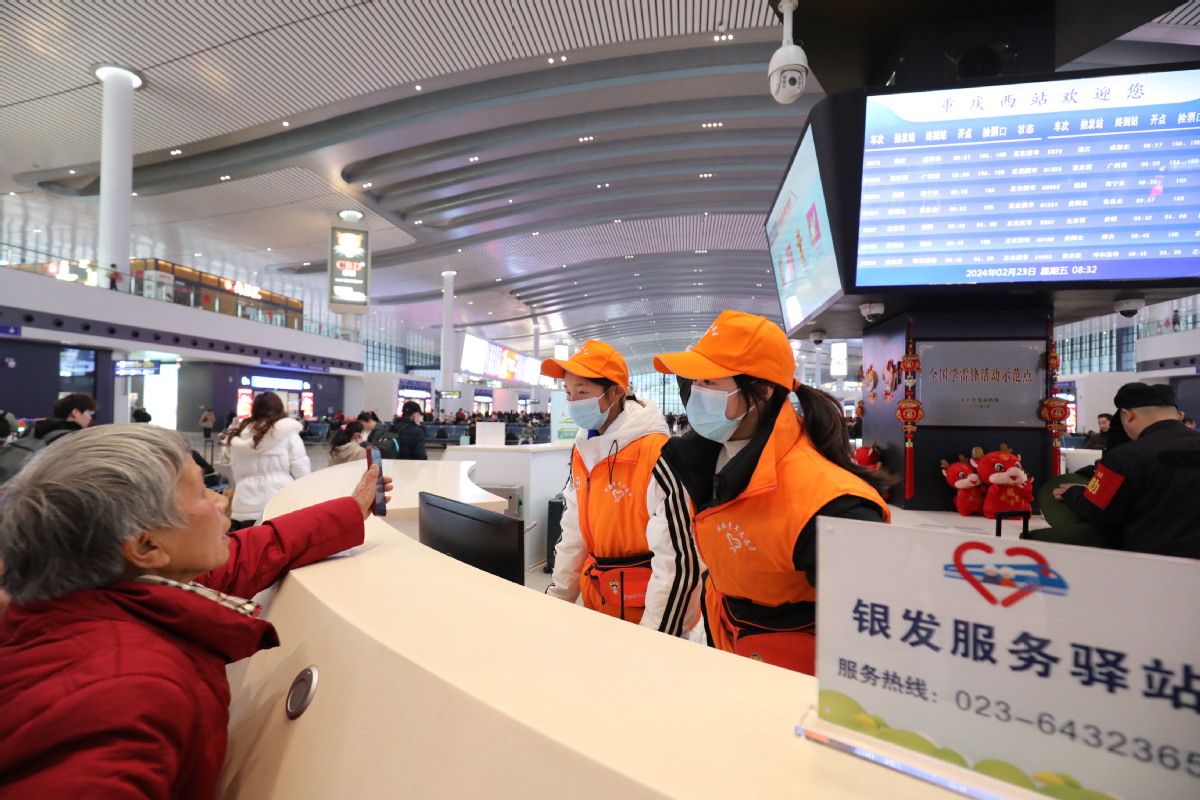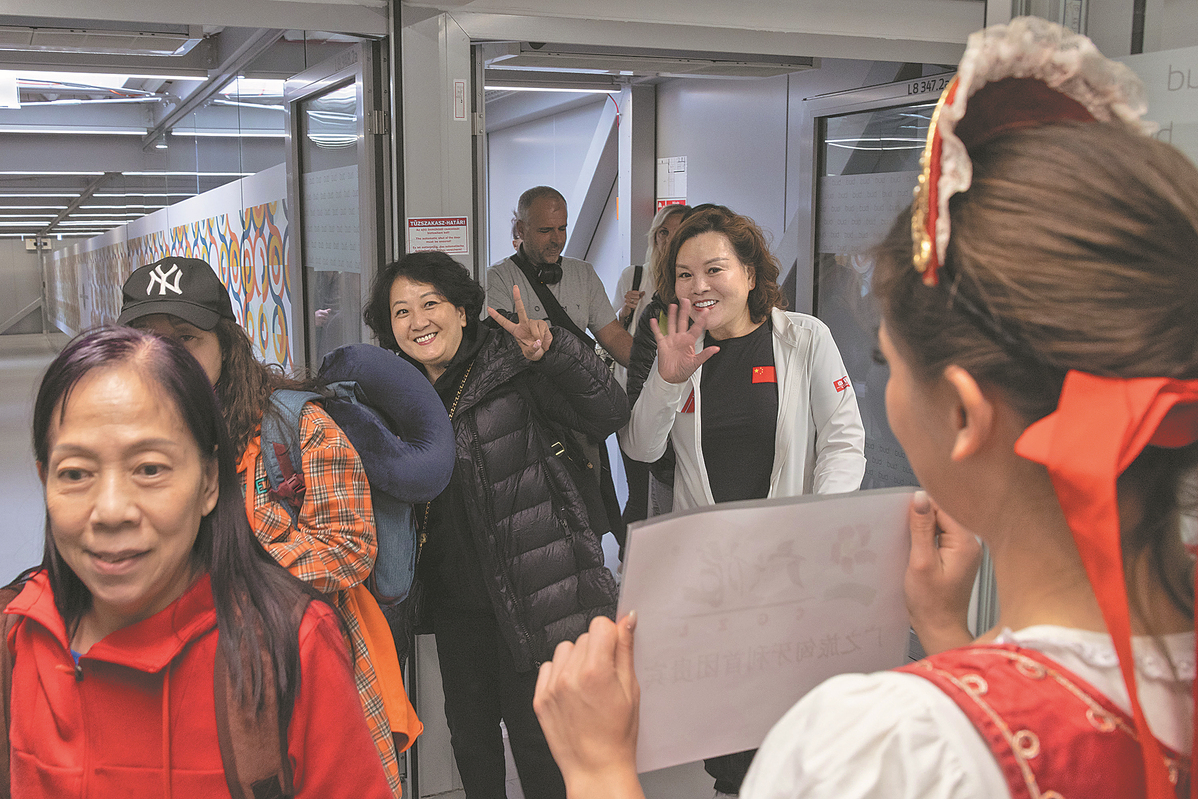China’s elderly travelers are redefining tourism, with more seniors exploring exotic destinations like Iran, benefiting from post-Chinese New Year travel deals
(ANN/THE CHINA DAILY) – During a late January holiday to Iran, 70-year-old Beijing retiree Hong Jianyi and his family found their expectations greatly surpassed.
Captivated by the nation’s profound history and the warmth of its people, Hong’s journey occurred just before the Spring Festival holiday rush.
This season, an increasing trend sees sophisticated, mostly senior, Chinese tourists exploring unique destinations like Serbia, Morocco, and Tunisia, drawn by the significant savings on accommodations and airfare post-Chinese New Year.
Travel costs to these sought-after spots have seen a reduction of nearly 40 per cent in March, the travel off-season, compared to the Spring Festival prices, reports Qunar, a leading online travel agency based in Beijing.
This month, tourists over the age of 55 are flying an average distance exceeding 1,200 kilometres, marking a 30 per cent increase from last year.
The travel agency also noted that the share of elderly travelers among all outbound tourists has nearly returned to pre-pandemic figures, surpassing nine per cent.

Xiao Peng, a researcher at Qunar’s big data research institute, highlighted the appeal of March for travel, despite its traditional off-season status.
“March is suitable for spring outings, but it has been an offseason for travel for many years. This year, more travelers have embarked on their journeys in March, especially for outbound trips,” Xiao observed.
He attributed the rise in travel activity to “strong demand” and noted that “the falling prices of flight tickets and hotels have significantly stimulated demand.”
Furthermore, Xiao pointed out a notable trend among senior travelers: “The booking volumes of outbound travel by elderly consumers have surged compared with the same period last year, indicating that the capacity of outbound flights and overseas receptions has gradually recovered, and elderly Chinese are showing a strong willingness to spend.”
This surge underscores a growing interest and capability among elderly Chinese to engage in international travel, buoyed by the recovery of the travel industry and more accessible prices.
A large number of elderly Chinese born in the 1960s are tech-savvy. Online bookings and languages are not barriers for them, and more than 80 per cent of such elderly customers travel without being accompanied by their children, Xiao added.
The number of travel bookings by children and students under the age of 25 has declined, while the growth in bookings has been most significant for middle-aged and elderly travelers, Qunar said.
Thanks to visa-free policies for Chinese visitors, Thailand, Malaysia, and Singapore rank among the top five overseas destinations in terms of flight booking volumes in March, and the number of Chinese travelers who booked flight tickets a few days in advance has significantly increased, Qunar said.

Airlines are launching more flights to Southeast Asia to satisfy the growing travel demand.
Guangzhou-based China Southern Airlines launched its first direct flight — an Airbus A321 aircraft — connecting Beijing Daxing International Airport and Singapore on March 7.
The route, three times a week initially, will turn into daily trips from March 31. Following the launch of the new route, China Southern now operates 45 weekly flights between China and Singapore. The carrier said it will continue to increase its international flight capacity by launching and resuming more international flights.
In January, China and Thailand signed an agreement on permanent mutual visa exemption, which became effective on March 1. Earlier, the visa exemption policy between the two countries had been temporary.
Now, a one-way flight ticket to Bangkok from domestic cities such as Shanghai; Guangzhou, Guangdong province; and Chengdu, Sichuan province all carry price tags of around CNY600 (USD83) each.
Flights departing between 6 am and 9 am are popular among this set, given the cheaper prices, Qunar said.
This year, Thailand will hold various events across the country to celebrate Songkran, the world’s largest water festival, with a total of 21 days of celebration and revelry from April 1 to 21.
“Fun and interesting festivals are becoming a benchmark for tourism, and featured activities will help drive local consumption,” Xiao said.
In China, the period between April 13 and 15 is better known as the water splashing festival and is also the New Year period for the Dai ethnic minority, when people splash water on each other to send and receive blessings.
Many travelers have booked their flights to Xishuang Banna Dai autonomous prefecture in Yunnan province in advance, and the booking volume has doubled compared to the same period of 2023.
This year, there are more flights from various cities within the country to Xishuang Banna, and the average price of flight tickets has fallen by about 30 per cent.
Most of the domestic tourists are from Shanghai, Chongqing, Hangzhou, Zhejiang province, Changsha, Hunan province, and Guangzhou, Guangdong province, according to Qunar.
As the grandest traditional event of the Dai ethnic group, the water splashing festival is celebrated in various places in Yunnan, such as Mangshi, Pu’er, Ruili, and Lincang.

Some tourists prefer to explore rich folk customs and experience the festive atmosphere in small towns, and the booking volumes of hotels in such places have jumped 40 percent from the same period last year, Qunar found.
After the frenetic travel rush during the Spring Festival, the market is expected to embrace a long window during which one can travel by avoiding holiday peaks.
On some popular domestic routes, the prices of flight tickets could be lower than train tickets. For instance, the price of a one-way flight from Beijing to Sanya, the tropical island of Hainan province, could be lower than CNY400, said Tuniu Corp, a Nanjing, Jiangsu province-based online travel agency.
By the end of the 14th Five-Year Plan (2021-25) period, more than 100 million healthy elderly Chinese — who have strong purchasing power — are expected to travel frequently. Sales of the elderly tourism market are forecast to hit CNY1 trillion, according to a projection by the China Tourism Academy.
Tourist spots that can meet diverse and personalized demands will become sought-after and desirable among travelers.
Cities that utilise factors such as modern technologies, culture and art may also become popular tourist destinations, said Dai Bin, president of the Chinese Tourism Academy.
“The increasingly personalised travel demand from Chinese consumers has provided travel agencies with more business opportunities and potential for innovation. While boosting consumer confidence, it is expected to significantly promote the recovery and growth of the Chinese economy and the global tourism market,” Dai added.







